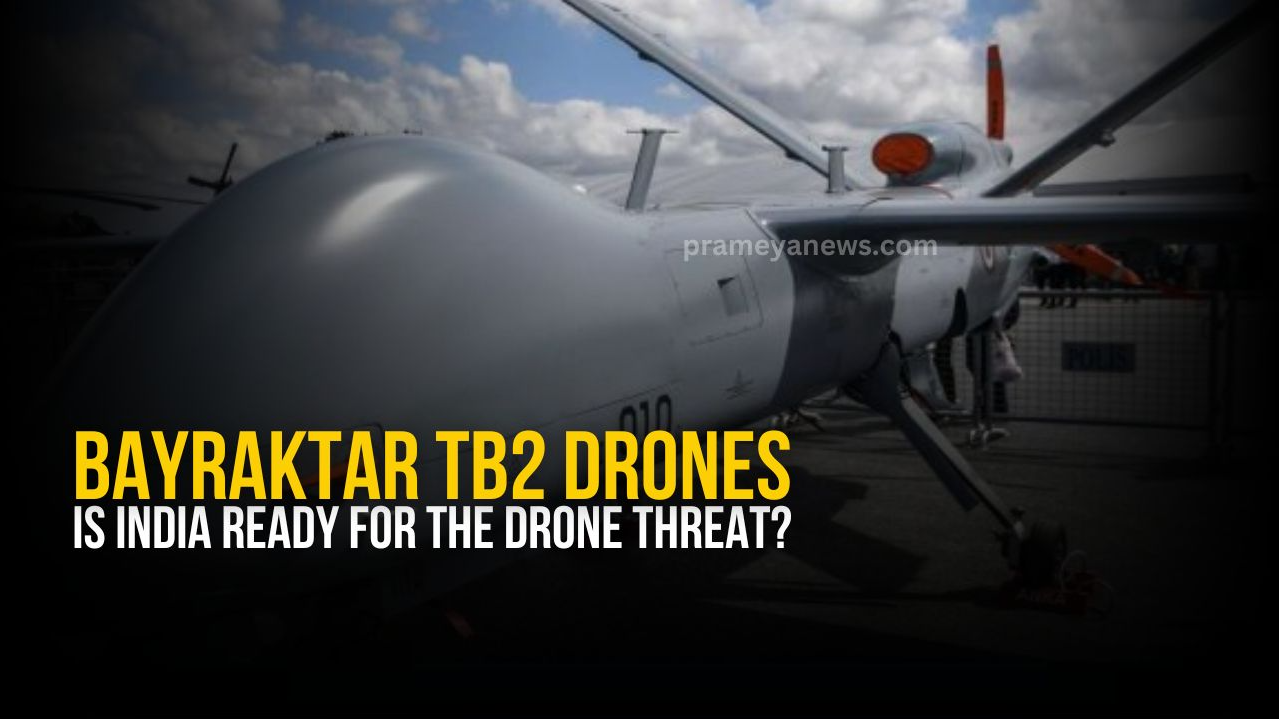

The recent deployment of Bayraktar TB2 drones by Bangladesh along its border with India has brought the growing significance of unmanned aerial vehicles (UAVs) in regional security into sharp focus. These sophisticated drones, which played a decisive role in the 2020 Nagorno-Karabakh conflict, have the potential to alter the strategic balance in the region. This raises critical questions about India's preparedness to counter the rising drone threat and its own capabilities in this rapidly evolving domain of warfare.
Bayraktar TB2:
The Bayraktar TB2, developed by Turkey's Baykar Defence, is a medium-altitude long-endurance (MALE) drone that has gained a reputation for its effectiveness in combat. Its relatively low cost, combined with its impressive capabilities, has made it a popular choice for several countries, including Azerbaijan, Pakistan, and now Bangladesh.
Technical Specifications:
India's concerns:
The deployment of Bayraktar TB2 drones by Bangladesh raises several concerns for India. The drones' long endurance and operational range allow them to penetrate deep into Indian territory, potentially for surveillance or even offensive operations. Their ability to carry laser-guided munitions poses a threat to Indian military assets and infrastructure. Moreover, the drones' low radar cross-section makes them difficult to detect and track, particularly in the challenging terrain along the India-Bangladesh border.
India's counter-drone strategy:
India is acutely aware of the growing drone threat and is taking steps to bolster its counter-drone capabilities. These efforts include:
Preparedness and challenges:
While India is making significant strides in its drone capabilities, challenges remain. The indigenous Tapas drone has faced delays in development and induction. The complex terrain along the India-Bangladesh border poses challenges for drone detection and interception. Moreover, the proliferation of drone technology among neighboring countries necessitates continuous investment in counter-drone measures.
The deployment of Bayraktar TB2 drones by Bangladesh underscores the evolving nature of regional security challenges and the growing importance of drone technology in modern warfare. India is responding to this challenge by enhancing its drone capabilities, investing in anti-drone technology, and strengthening its surveillance and intelligence gathering efforts. While challenges remain, India's proactive approach demonstrates its commitment to maintaining a credible deterrent and safeguarding its national security in the face of the evolving drone threat. The ongoing developments in drone technology and its implications for regional security will continue to be a focal point for India's defense strategy in the years to come.
DISCLAIMER: This brief is based on information from publicly available sources and reflects the author's interpretation of the topic and do not reflect Prameya's or Prameya News7 editorial stance.